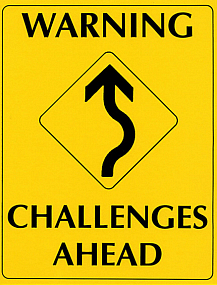| Online: | |
| Visits: | |
| Stories: |

| Story Views | |
| Now: | |
| Last Hour: | |
| Last 24 Hours: | |
| Total: | |
Disease and 3 Recent Social Engineering “Challenges”
While the media are dousing the public in the three Ds, which appear to be ritualistic in nature, I’ll briefly touch on that last D – the focus on disease and the “challenges” meant for you. Social engineering being, in short, guiding thought in masses. In this case, peer pressure on a really big scale.
So just in that one “D” segment of the news, people were recently crushed with disease-awareness. Ebola, Lou Gehrig’s, and depression/suicide. Those are all high-impact problems for sure, but I saw a startling pattern those things have in relation to this other vastly unknown epidemic (saved for a later article). Also, each covered issue not only contains challenges for the people suffering with them, but the media gave you a “challenge” to go with it. Sort of like an order.
Are there underlying symbolic challenges too?
1. The ALS Ice Bucket Challenge. A brilliant, viral marketing campaign which was supposed to raise awareness and money for Amyotrophic Lateral Sclerosis or Lou Gehrig’s Disease research. The challenge: record yourself dumping a bucket of ice water on your head and nominate (challenge) three people to do the same, or they must pay $100 to ALS research. A lot of good-hearted people did it to truly raise awareness for a cure. A lot of people also didn’t know it was about ALS. I didn’t even know until I saw Dr. Scott Grave’s article, Why I’m Not Participating in the ALS Ice Bucket Challenge. I thought it was like “planking.”
It’s odd in a baptismal sort of way that doesn’t bear much connection with the disease. That’s why the symbolism in it stands out. Elites like Bill Gates, George W. Bush and celebrities participated – the pressure was high to join in the fun. In a way, it’s unfortunate that something needs to be “viral” or like “planking” to bring attention to something. For a long time, there have been new methods of research in place precisely to predict how the average person will respond to such a thing. Also odd, the 27-year-old man who supposedly came up with the idea died unexpectedly in a diving accident. What was this viral sensation “drowning” out?
The underlying challenge: You don’t have to know anything about the disease. Either way, embrace public humiliation, face shame or pay up. Don’t question it, just go with it.
Underlying challenge to you: Be afraid…be very afraid…(when it happens to you or someone in your town, you are no longer your own person.)
 3. Around the same time, Facebook was crowded out like never before, with Robin Williams’ death. Have you ever seen a celebrity death plastered on social media like that before? It’s normal to feel bummed when an entertainer dies, but there was pressure to share grief on social media – like he was people’s best friend even though they hadn’t given him any thought for 20 years. The immense “tributizing” was significant as well – then, the digging into his private life to lay it out so everyone could make decisions about him.
3. Around the same time, Facebook was crowded out like never before, with Robin Williams’ death. Have you ever seen a celebrity death plastered on social media like that before? It’s normal to feel bummed when an entertainer dies, but there was pressure to share grief on social media – like he was people’s best friend even though they hadn’t given him any thought for 20 years. The immense “tributizing” was significant as well – then, the digging into his private life to lay it out so everyone could make decisions about him.
It was stomach-churning to see the promotion and profit regarding his name, or the issue of depression or suicide – and tags (death tags). There was even a blog that unapologetically said they were all profiting off his death and then challenged the other media to donate that money to charity….
One of the most disturbing aspects of this is, people don’t really get a chance to feel bummed about something like that. It gets sorted, meted out and compartmentalized by various media and the open public discussion (or fights) about it. This was a real guy, y’know? The way it was responded to had the opposite effect of dehumanization. Then came all the depression/suicide talk. Got it sorted yet, Internet? There are many reasons a person becomes depressed and many approaches to healing it. But the only one allowed to be discussed was prescription drugs and/or psychotherapy – a rabbit hole for another time. (You may enjoy Jon Rappoport’s stories.) Now everyone’s an authority, it’s wrapped up with a bow until the next celebrity goes. The very thing that could isolate a depressed person in real life was the very attitude towards his death. Clinical dissection.
Underlying challenge: Muster grief and make it public. Depression is a disease which can cause suicide and must be treated with anti-depressants – look deeper, report someone for intervention. Share your depression story. Dissect. Discuss. Tag. Tribute. Wrap it up. Move on. Oh, and charity fixes everything. Money please!
My call today (not challenge) is that people would take some time away from the battle fatigue and be careful not “drown” in Vitamin DDD.
Recent Posts By Heather Callaghan:
Heather Callaghan is a natural health blogger and food freedom activist. You can see her work at NaturalBlaze.com and ActivistPost.com. Like at Facebook.
Source: http://www.activistpost.com/2014/08/disease-and-3-recent-social-engineering.html





